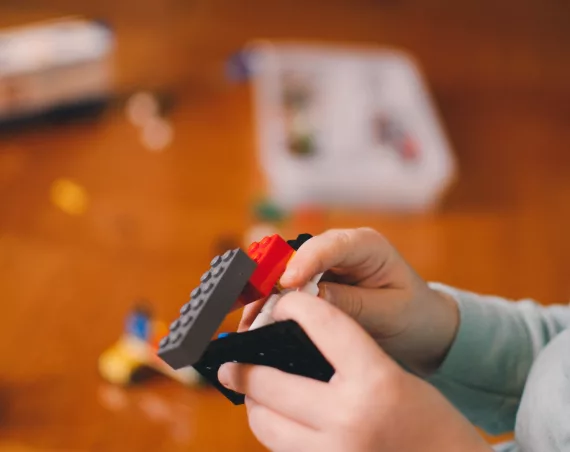
Song Lyrics – Ralph McTell – Streets of London
Powered by RedCircle
Hello and welcome to Learn English Vocabulary. My name is Jack and I’m making this podcast for you to learn or revise English vocabulary. You can find a transcript of this podcast on LearnEnglishVocabulary.co.uk. There’s a page for this podcast with the transcript, an activity and a task for you to do in the comments section.
Today, I want to talk about a song which was written and performed by a folk musician called Ralph McTell. The song is called Streets of London and was requested by Naomi from Germany. I think the story of the song is quite easy to understand but there are a few items of B2 vocabulary that are worth talking about. I will go through the song verse by verse and pick out the interesting vocabulary as I go.
OK – here’s verse one.
Have you seen the old man in the closed-down market
Kicking up the paper with his worn-out shoes
In his eyes you see no pride
Hands held loosely by his side,
Yesterday’s paper telling yesterday’s news
Closed-down
I’m going to go through some of this vocabulary quite quickly. The old man is in the closed-down market. Closed-down is the same as closed like for a shop. A shop can be open, which means you can go and buy things or closed. Now, if something is closed down. It means that things are packed away. It’s not like a shop where you can just shut the door. So you can close down a market and take down the stalls. Or if you work on a fairground ride or in a theme park, you have to open up the rides in the morning and then close them down again in the evening.
Worn-out
The old man is kicking up the paper with his worn-out shoes. We use worn-out mostly with clothes, and especially shoes. It means broken because something has been worn too much. So shoes wear out when you walk in them for so long, the soles have holes in them and the stitching is coming undone. You can wear out other things. The handgrips on my bikes are pretty badly worn. I suppose most people would say they were worn out and should be replaced.
Pride
In his eyes, you see no pride. Pride is a feeling. It’s a good feeling, a mixture of pleasure and satisfaction that you get when you have done something really well. You can also feel it when people connected to you do something well. So I am really proud of my boys. It is one of the seven deadly sins – certainly, if you are too proud, it is not attractive. We have a saying in English that comes from the Bible: Pride comes before a fall. There is an idiom as proud as a peacock. A peacock is the bird that’s a bit like a chicken but with a massive tail that it uses to pose. The opposite of pride is humility which means an acceptance and awareness of faults. If you have humility, you are a humble person.

Now there’s the first chorus.
How can you tell me you’re lonely
And say, for you, that the sun don’t shine
Let me take you by the hand
And lead you through the streets of London
I’ll show you something to make you change your mind
Lonely
How can you tell me you’re lonely. To be lonely means to feel sad because you are on your own and want to be with people. When I was younger, I moved to different countries to teach English and at first, when you move to a new city, you can get lonely. I found the first few months quite hard because I was alone and didn’t know anybody.
The sun don’t shine
In the next line, there’s a strong collocation. The sun don’t shine. OK , this is technically bad grammar, but it’s quite common for people in London to use don’t instead of doesn’t in sentences like this. The sun shines, that’s the collocation I wanted to highlight. The sun is shining, the weather is sweet as Bob Marley sang. Sadly, there are many days in London and the UK when the sun is not shining. Hopefully it will shine tomorrow.
Lead
Let me take you by the hand and lead you through the streets of London. If you lead someone, you show them the way to go. You are the leader. Whenever I go out for a walk with my boys, they always want to be the leader, but they often don’t know the way which is fun. If you lead someone, then usually, you are holding their hand and sort of pulling them slightly in the direction you want to go. It’s not quite the same as to take someone. I think we also use lead when the route or path is complicated, so you would lead someone through a maze or a minefield. If you take someone through a minefield, there’s a good chance you are going to get blown up, but if you lead someone, then it’s because you know the safe way to go through it.
Change your mind
I’ll show you something to make you change your mind. If you change your mind, it means to change your opinion or choice about something. This happens often with opinions we have about people. So perhaps you thought that someone at work was really boring or mean and then they did something that convinced you that you were wrong. They did something to change your mind. We also use this idiom in restaurants. So when you arrive and start looking at the menu, you might decide to have the steak pie and then after looking at the menu for a while you might say: I’ve changed my mind, I’m going to have the fish and chips.
In the next verse, we meet a new character.
Have you seen the old gal who walks the streets of London
Dirt in her hair and her clothes in rags
She’s no time for talking, she just keeps right on walking
Carrying her home in two big shopping bags
Old Gal with dirt in her hair
An old gal is a colloquial expression for an old lady. It’s really old girl but with a strong London or cockney accent. The old gal has dirt in her hair. Dirt is usually mud, that is earth, from the ground. But in a city, if you sit on the floor and get dirt on your clothes, it probably won’t be earth. It will probably come from the traffic or perhaps a pigeon.
In rags
Dirt in her hair and her cloths in rags. A rag is a torn piece of old cloth. I don’t think this happens so much in the UK any more, but old clothes that were too worn out to wear anymore would get torn up and used as cleaning cloths. They were rags. If your clothes are in rags, it means that they are so torn, they look like rags. There is another phrase that means the same thing: in tatters. If something is in tatters, then it looks so broken up that it should be thrown away. You can use this for clothes and also for old books and also figuratively to talk about a person’s reputation. The scandal left his reputation in tatters.
Keep right on walking
She’s no time for talking. She just keeps right on walking. To keep on doing something means to continue doing something. You can keep on trying when something is hard or if you keep on eating those sweets, you’ll be sick. If you keep right on walking, it’s slightly more emphatic. If someone keeps right on doing something, then you are saying that there are distractions or reasons that the person should stop, but no … they just keep right on doing it. For example, Billy was told off for chewing gum in school His teacher told him to spit the gum into the bin, but Billy just kept right on chewing that gum.
Next, there’s a chorus again and then the third verse.
In the all-night cafe at a quarter past eleven
Same old man sitting there on his own
Looking at the world over the rim of his teacup
Each tea lasts an hour and he goes home alone
Ther rim of his teacup
He’s looking at the world over the rim of his teacup. The rim is the outer edge of something, often something circular. Teacups have rims, glasses or spectacles have rims. We also use the word to talk about special wheels for a car which I guess comes from the same meaning as the rim of a cup, but means more than just the edge now.
To last an hour
Each tea lasts an hour and he goes home alone.
When we use last as a verb, it normally goes with a time phrase and it indicates the duration or something. So you might ask how long does the film last? The film lasts for 2 hours. In my house, biscuits don’t last very long. This means that they all get eaten quite quickly. In the song, the old man makes a cup of tea last an hour, which isn’t a good idea because tea goes cold faster than that so he must have been drinking cold tea.

Now there’s another chorus and the last verse.
Have you seen the old man outside the seaman’s mission
Memory fading like the ribbons that he wears
In our winter city, the rain cries a little pity
For one more forgotten hero in a world that doesn’t care
The mission
The seaman’s mission is a place where old seamen can go to sit and talk. Generally, these places are organised by religious groups. Usually, old seamen can get a cup of tea and perhaps something to eat. I don’t think that we use the work mission in this way much anymore. I hear it more in American English and I think that the meaning is the same.
To fade
Memory fading like the ribbons that he wears. This means that his ability to remember events from his past is not as clear as it used to be. We use the verb fade to talk about colours when clothes are left in the sun or perhaps put through the watching machine. It means they are less bright and colourful than they were when they were new. Towards the end of the day as the sun sets, the light fades. It gradually gets darker. Over time, our memories can become less vivid, less clear or distinct. The longer ago something happens, usually, the more the memory fades.
Ribbons
For the old man, his memory is fading like the ribbons he wears. Ribbons are narrow pieces of fabric that are worn for decoration. I have two sisters who had long hair when I was a child and they usually tied their hair with ribbons to look nice. The old man is wearing different ribbons. His ribbons are military ribbons and they relate to different military campaigns or battles that the old man fought in. So when the old man was younger, he was in the army or more likely the navy and fought in a war and was awarded campaign decorations or medals.
Pity
In our winter city, the rain cries a little pity. Pity is a feeling of sadness that you might feel towards someone because of their sad situation. If you visit an orphanage, you might feel fad for the children. This would be pity. If you see an old homeless man, you might feel pity for him.
I don’t care
In the winter city, the rain cries a little pity for one more forgotten hero in a world that doesn’t care. To care for someone or something means to show attention and usually love for the person or thing. I care for my dog. I look after her and take her for walks. If someone presents you with a problem or a sad situation and you say that you don’t care, then you are saying that you don’t feel pity or sadness because you don’t have any feeling for the person or situation. This was why there was an outrage when the ex-first lady Melania Trump visited migrant children who had been cruelly separated from their parents due to her husband’s policies and she wore a jacket with the words on the back: I really don’t care. Do you? Well, yes, Melania Trump – these are children. Most people do care.
This is a sad song and the tune and melody and folk style suits the meaning so it’s quite powerful. I think that Ralph McTell sings the lyrics clearly because he wants you to understand the message so it’s a good song to listen to and sing along to help remember the vocabulary.
Conclusion
Thank you Naomi for recommending this song. I had not listened to it for many years so I would never have thought to make a podcast about it and I think it’s a great song for learners.
If you have enjoyed this podcast, please leave me a comment or a rating or a review. I love to hear from you and any comments or suggestions you have. If there are any topics or songs or scenes from a film that you would like me to talk about or anything else you would like to hear, I would be delighted to make a podcast for you. So please visit LearnEnglishVocabulary.co.uk and say hello.
Thanks for listening.





4 Comments
Cemile Ceylan
I love listening your podcast teacher Jack. My English knowledge is improving day by day thanks to your all podcast. Thank you sir for everything you have done! 🙂
Jack
Thanks Cemile – I really appreciate hearing from listeners.
Jess
Please make a podcast by a song from My Chemical Romance called Cancer
I always excited listening your podcast..
Thank you very much indeed, Jack
Chloe
Jack,
The songs you explained are always good and explanation is very clear and easy to understand. Just found you on Spotify another day and I love your podcast right away 🙂 .
Can you make a podcast for the song “Alone again naturally” – by Gilbert O’sullivan. I love this song so much but I can’t understand some phrases, what a pity.
Thank you so much.